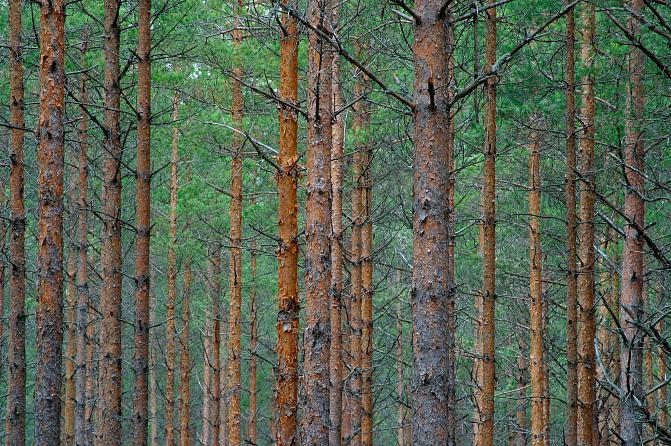Harri Mäkinen appointed Research Professor of Forest Growth and Yield
Harri Mäkinen was appointed research professor of forest growth and yield at the Luke at the beginning of August.
Mäkinen received his doctorate in Agricultural and Forest Sciences from the University of Freiburg in Germany in 1996 and then joined the Finnish Forest Research Institute. When Luke was established, Mäkinen continued his research work as a senior researcher in growth and yield.
The professorship in forest growth and yield research focuses on the dynamics of tree and forest growth and yield in varying and changing environmental conditions, as well as the effects of forest management on, for example, wood yield, carbon sequestration, stand characteristics important for biodiversity, and wood properties.

Congratulations on your nomination! What are your expectations for your new position?
I am looking forward to developing this field of research, as more information is needed on the effects of the constantly changing environment on forest growth.
The role of research professor is broad and challenging, but the starting point is good, as research in this field has been in good hands at Luke. We must be able to maintain the same high standards in the future. I hope that the good cooperation with stakeholders will continue as before.
What are the next key issues in forest research?
In the big picture, forest management is becoming increasingly diverse. Whereas single-species stands were previously favoured, the trend is now towards more small-scale methods and continuous cover forestry. The management unit can even be a single tree or group of trees. Small-scale management is also evident in the cultivation of mixed forests, i.e., how the growth of different tree species is coordinated.
Although the selection system and gap cuttings associated with continuous cover forestry have been studied, but there are few published results based on empirical, long-term measurements on the effects of continuous cover forestry on forest growth and yield.
Another key topic is carbon sequestration. We now better understand how different forest management methods affect tree growth and carbon sequestration. However, when we look at the carbon sequestration of entire forests, including soil and surface vegetation, there is still much to be researched.
What is the social role of forest research?
The forest sector is hugely important to Finnish society and researching it is an important task for me. For example, when timber imports from Russia ceased and the forest industry's supply of timber was significantly reduced, we need to identify ways to compensate for this. What could be done on the production side to increase growth in a sustainable manner?
Society's expectations and demands for forest management have also changed. For example, continuous cultivation is not yet mainstream, but forest owners are interested in the method. At Luke, we produce information on how to best combine economic, sustainability, and biodiversity goals in forest management.
How can research data best be put into practice?
The public discussion on forests requires compromise and genuine dialogue that seeks to understand different points of view. At Luke, our role is to provide facts and explain cause-and-effect relationships between phenomena. We provide forest owners and practitioners in companies and government with researched information to support decision-making.
It is motivating to know that there is a demand for information and that the link to practice is clear, even though the time frame for research is often very long.


